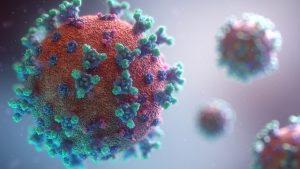On June 7, 2020, Junshi Biosciences announced that a Phase 1 clinical study of JS016 in healthy volunteers had started in China. JS016 is a human monoclonal antibody that targets the SARS-CoV-2 spike protein and blocks binding of the virus to host cells. The antibody was identified by screening B cells from convalescent COVID-19 patients, and engineered to introduce LALA mutations to silence the Fc portion. JS016 was shown to provide protection from SARS-CoV-2 infection when administered to rhesus monkeys (Shi et al. Nature 2020).
The clinical study will evaluate the tolerability, safety, pharmacokinetics and immunogenicity of JS016 in healthy volunteers. If the Phase 1 study shows the antibody can be administered safely, Junshi Biosciences intends to start another clinical study in that will assess JS016’s ability to prevent and treat COVID-19.
Junshi and Eli Lilly and Company are collaborating to co-develop JS016, with Junshi leading clinical development in China and Lilly leading clinical development in the rest of the world. The antibody was jointly developed by Junshi Biosciences and the Institute of Microbiology, Chinese Academy of Sciences.


